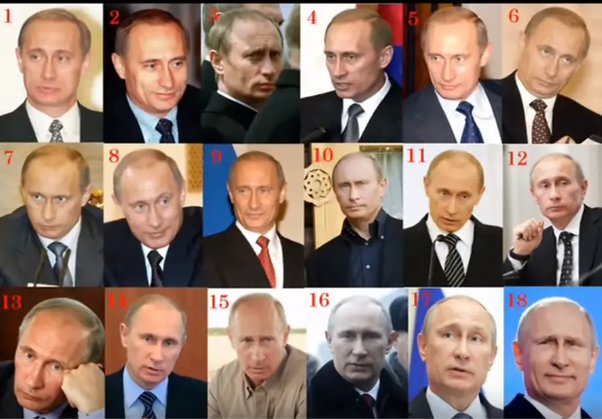
Resurgence of Tensions Between the U.S. and Russia
Russia’s war on Ukraine, which began nearly a year ago in February 2022, has roots extending back to Russia’s annexation of Crimea in 2014.1 During this period, Russian President Vladimir Putin has clashed with five U.S. presidents as he has maneuvered to rebuild the Russian empire.1
The new FRONTLINE documentary “Putin and the Presidents” provides unique insight into the icy relationship between Putin and current U.S. President Joe Biden, as well as the evolution of Putin’s grievances with the U.S. and the West.1 Drawing on in-depth conversations with insiders from five U.S. presidential administrations, former U.S. intelligence leaders, diplomats, and Russian and American journalists, the documentary examines how the miscalculations and missteps of multiple American presidents over two decades helped pave the way for Putin’s attack on Ukraine.1As Secretary of State Antony Blinken notes, “Vladimir Putin needs to somehow justify the horrific sacrifices that Russians are making on his orders by broadening the aperture, making this about something bigger, into some kind of conflict with United States, with the West, with NATO — take your pick.”1The documentary provides essential context on how we reached this dangerous point, with the war in Ukraine nearing its second year.1

The Shifting U.S.-Russia Relationship under George W. Bush
Relations between the U.S. and Russia during the George W. Bush era were marked by a dramatic shift from cooperation to confrontation, setting the tone for the ensuing decades.2Russia’s unequivocal support for the U.S.-led War on Terror in the wake of the 9/11 attacks in 2001 gave way to a sustained rise in anti-Western sentiment in the Russian political narrative.2This transformation was driven to a large extent by the approach of the Bush administration to foreign and security policy, notably its increasing unilateralism, liberal interventionism, and the pursuit of democracy promotion around the world.2These policies challenged Russian conceptions of its own status in the international system, as the Bush administration’s actions underscored the country’s apparent indifference to Russia’s status concerns.2
The initial cooperation between the U.S. and Russia after 9/11 was facilitated by the belief that Russia was on equal terms with the U.S.2 However, the 2002 U.S. National Security Strategy indirectly emphasized relative Russian weakness, declaring that the U.S. possessed unprecedented and unequalled strength and influence in the world.2 This signaled that U.S. dominance ensured it could pursue its interests regardless of the views of others, including powers like Russia.2
Conflicting Notions of Great Power Status
At the heart of the U.S.-Russia relationship are fundamental differences over notions of power, security, and international order.2The Bush administration’s approach challenged Russia’s self-perception as a great power and underscored enduring differences in the two states’ conceptualization of what a great power is.2
Russia’s belief in the inviolability of state sovereignty, spheres of influence in its neighborhood, and its own indispensable role in global affairs contrasted with the U.S. emphasis on values and its unprecedented structural and material power in a unipolar system.2The direct reference to Russia as a great power in the 2002 National Security Strategy mattered to Putin, who had been rebuilding Russia’s national identity around the notion that it was a great power.2
However, it quickly became clear how superficial the U.S. commitment to this grand realignment with great powers actually was. As the predominant power in the international system, the U.S. wanted and expected support for its policies, even if they challenged the position of others.2 The political structure of power was important to the Bush administration, which was increasingly critical of great powers with illiberal regimes and advocated the spread of U.S. values such as liberal democracy.2This fueled Russian fears about the possibility of foreign interference in its internal affairs, as the promotion of democracy came to be viewed as part of a new U.S.-led approach to warfare, involving the internal destabilization of rival states.2
Russia’s Assertive Response to U.S. Unilateralism
Although the U.S. may not have possessed all the capabilities of a great power, Russia nevertheless conceived of itself as one and expected others, particularly the U.S., to recognize this status.2 The lack of recognition from the U.S. stimulated Russian assertiveness, as Moscow strove to be acknowledged as a great power and impose its own views of international society, which prioritize sovereignty and non-interference in the internal affairs of states.2
Consequently, Russia became a vocal critic of Western moral interventionism, and its position on the international stage became increasingly assertive as it sought to challenge U.S. hegemonic practices and counter what it perceived to be its damaging unilateralism.2 This assertiveness persisted throughout the Obama, Trump, and Biden presidencies, as demonstrated by the interventions in Ukraine and Syria, and the pre-eminence of anti-Western sentiment and criticisms of U.S. power in Russian foreign policy discourse, culminating in the 2022 invasion of Ukraine.2
Shifting U.S. Presidents’ Responses to Putin
The former U.S. presidents, except for Trump, have strongly condemned Vladimir Putin’s assault on Ukraine.5 Each ex-president, like George W. Bush, Barack Obama, Bill Clinton, and Jimmy Carter, characterized the Kremlin’s actions as unjust and brazen, calling it the gravest security crisis in Europe since World War II. ((53), (54), (59), (61))
They stressed the need for solidarity with Ukraine, highlighted Russia’s assault on democracy, and emphasized that Russia alone would be held accountable economically and politically. ((54), (56), (60), (62)) In contrast, Donald Trump praised Putin, calling his actions ‘genius’ and ‘savvy,’ and suggested the ongoing Ukraine conflict wouldn’t have happened if he was reelected. ((64), (65), (67))Trump’s statements on NATO alliances and Russia’s actions created controversy and backlash, as they were perceived as unsettling by critics, including the Biden-Harris campaign.6Trump’s words stood in stark contrast to the unequivocal condemnation of Putin’s actions by the other former presidents.5
Conclusion
The interactions between Russian President Vladimir Putin and American presidents have had significant geopolitical implications, marked by a dramatic shift from cooperation to confrontation during the George W. Bush era.2 The Bush administration’s approach challenged Russia’s self-perception as a great power, fueling Russian assertiveness and a persistent deterioration of U.S.-Russia relations that has continued through subsequent presidencies. ((20), (30))
The current dangerous moment in Ukraine is the culmination of these longstanding tensions, as Putin seeks to justify the “horrific sacrifices” of the Russian people by broadening the conflict into a larger struggle with the U.S. and the West.1The stark contrast between the former presidents’ responses, with the exception of Trump, underscores the gravity of the situation and the need for a unified international response to Russia’s unjust assault on Ukraine.5
As the war in Ukraine approaches its second year, the FRONTLINE documentary “Putin and the Presidents” provides essential historical context for understanding how we arrived at this perilous juncture, highlighting the importance of clear-eyed analysis and the recognition of Russia’s great power aspirations in shaping U.S. foreign policy going forward.







